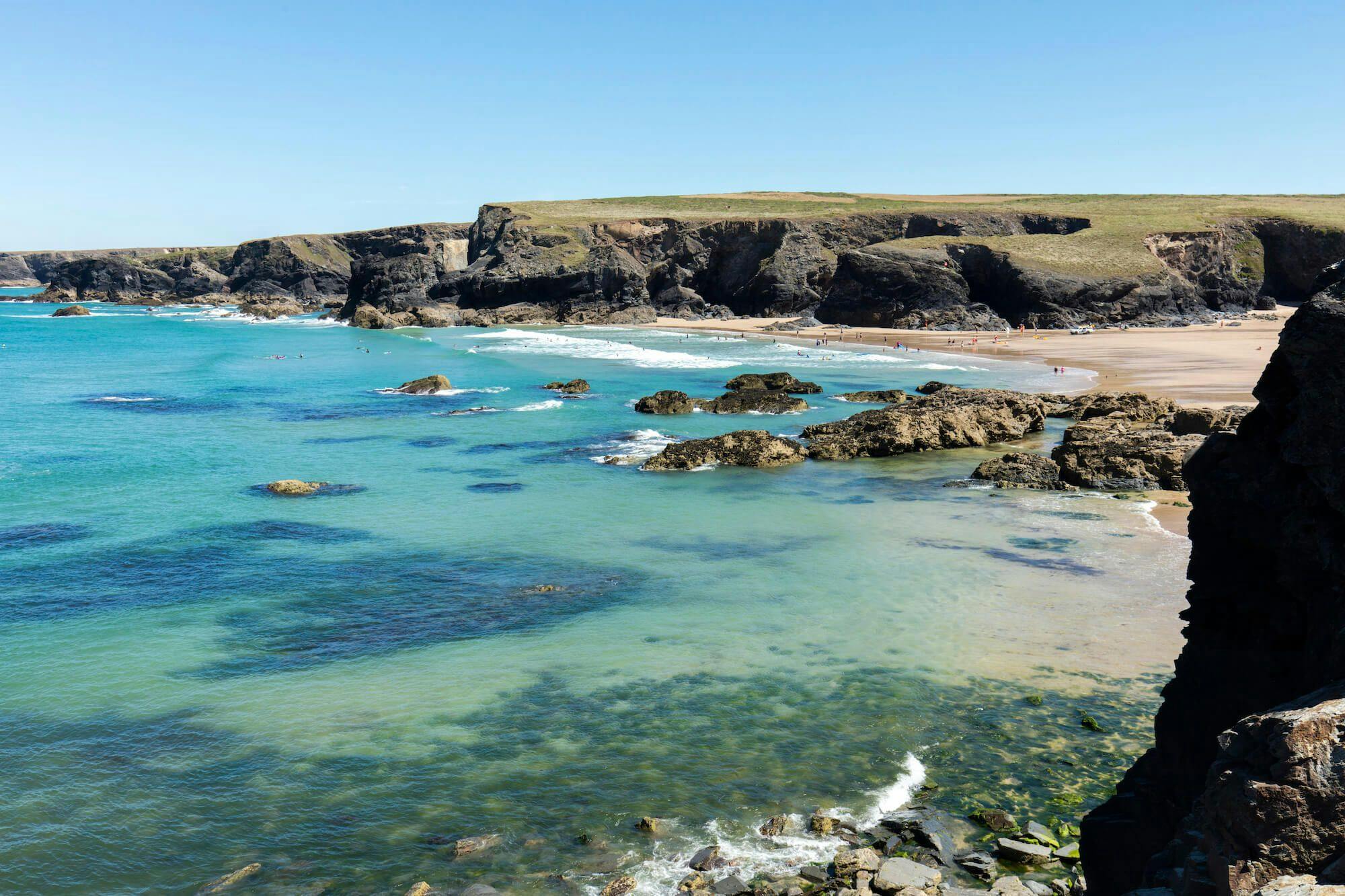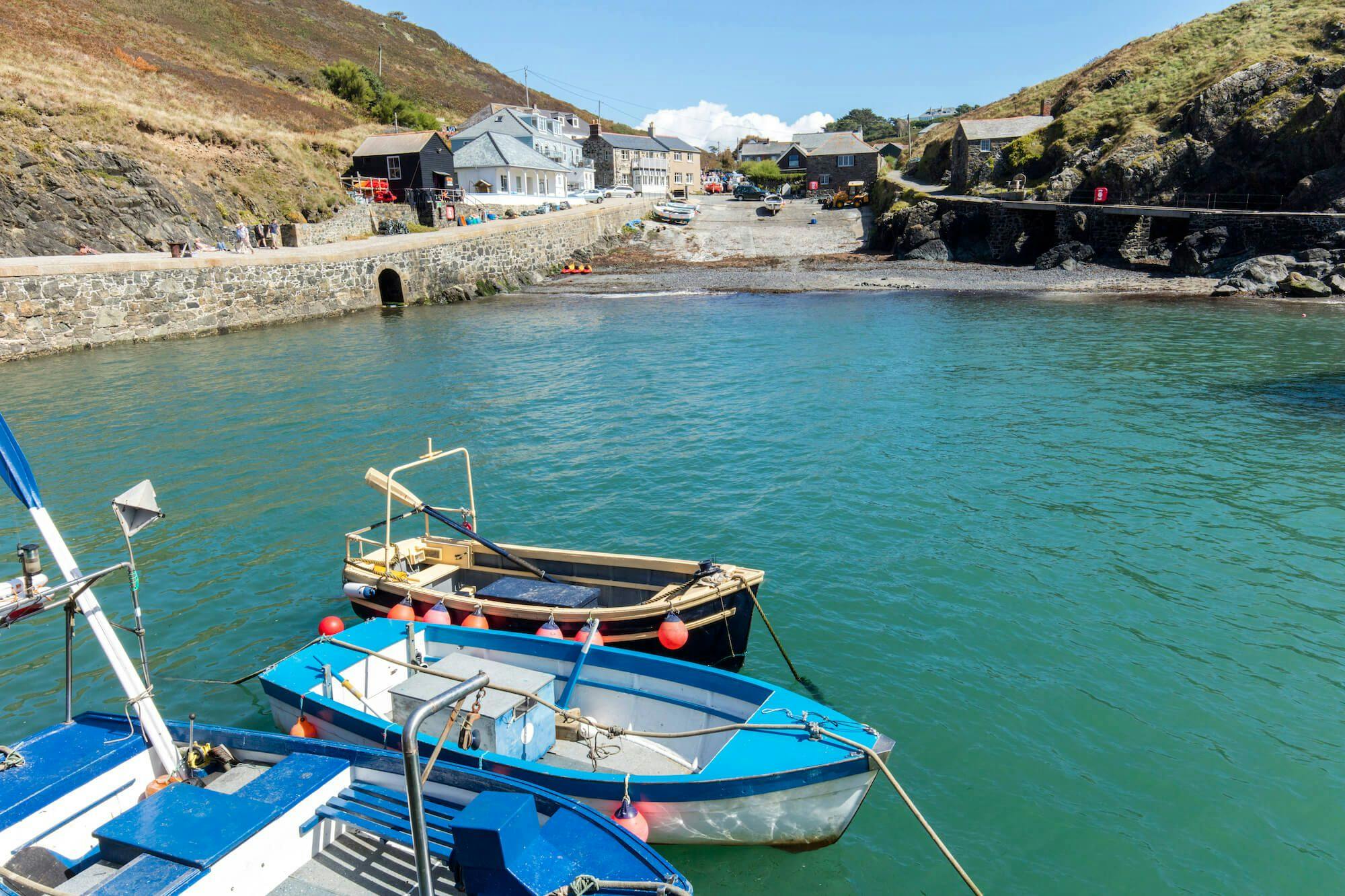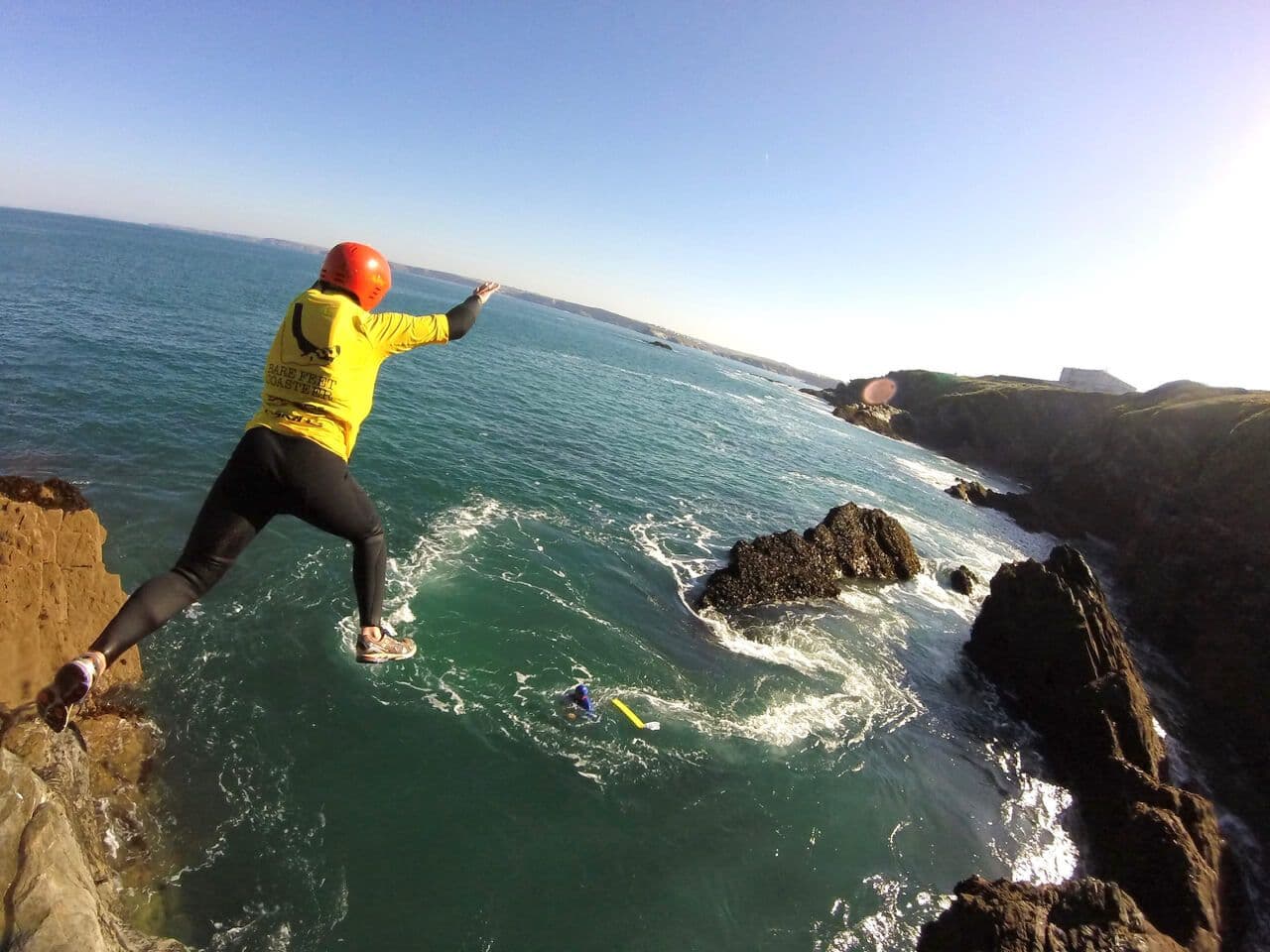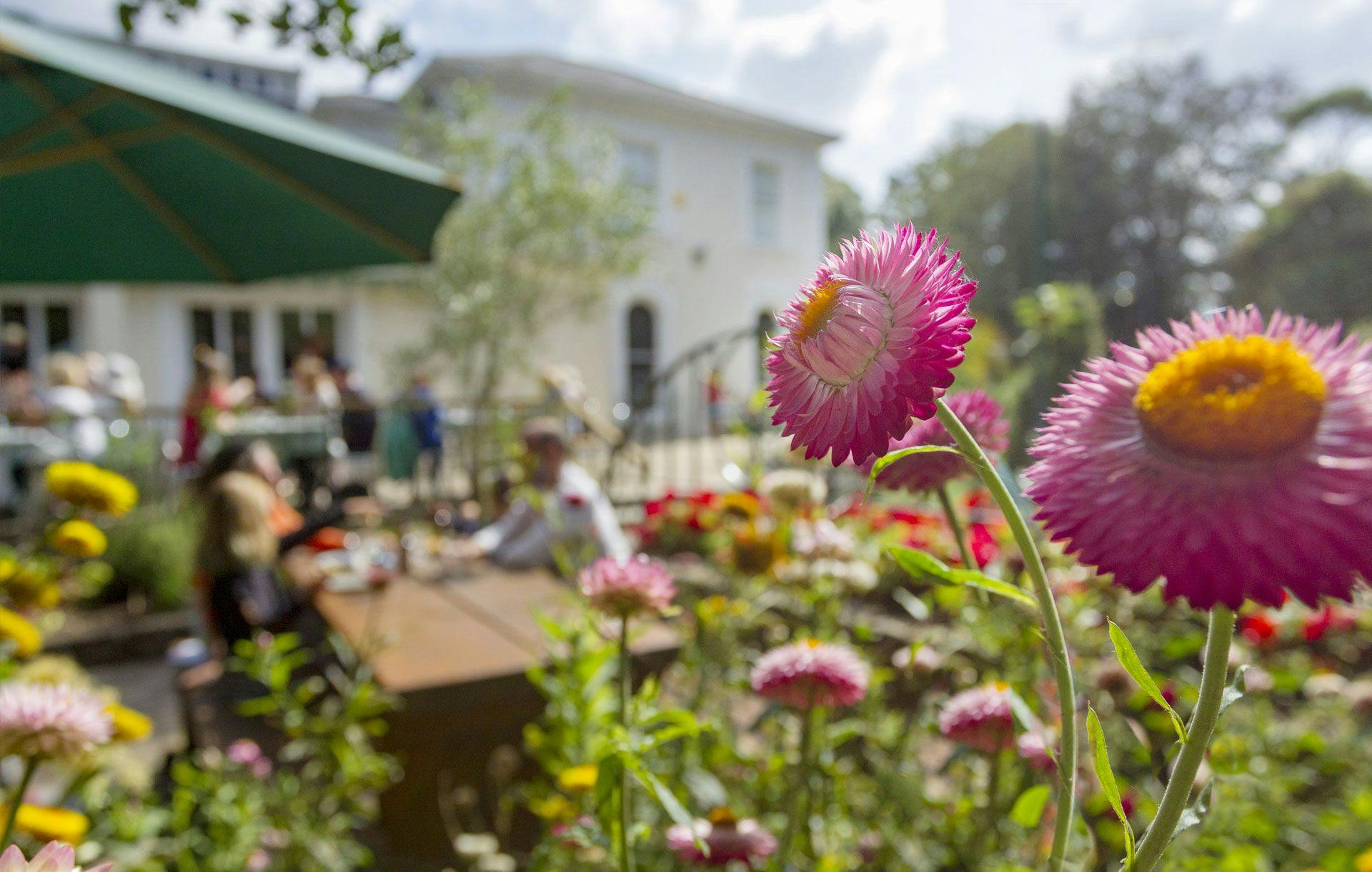Mullion
EglosmeylyonThe harbour on the edge
Mullion village
With historical pubs, restaurants and art galleries, Mullion is the largest village on the Lizard and a good base to stay or to stop off and stock up before you explore the beautiful countryside and coastline the area is renowned for. The heart of the village retains its Medieval origins sitting around the church, whilst 20th century development has seen houses spread down toward the coves at Mullion and Polurrian.
There are hotels in the area with stunning seaviews plus a number of campsites/holiday parks. The village also has self-catering properties of every shape and size,
At the local church you can see some rare 16th century pew ends intricately carved and depicting scenes from Christ’s passion, caricatures of clergy, bacchanalian figures and even Jonah in the belly of the whale. The north door of the church contains a dog flap which for centuries allowed local sheepdogs to run freely in and out of the building.
Mullion Cove
Mullion Cove on the west coast of the Lizard Peninsula is a small sandy beach, mostly covered at high tide, beside the historic lifeboat station and picturesque Mullion harbour.
Owned and cared for by the National Trust, the small Victorian harbour originally built in the 1890s sits along an unspoilt coastline of rugged headlands and small islands, the largest, Mullion Island – an uninhabited sanctuary to for nesting seabirds. The small quay remains a working harbour today and protects a fleet of small boats from the full force of the Atlantic.
Beaches
The main beach for holiday makers to Mullion is at nearby Polurrian Cove. This is actually nearer to Mullion village than Mullion Cove and can be accessed by a footpath. It's a sandy beach popular with surfers and families.
The South West Coast path runs through Polurrian Cove and is the best way of accessing the beach, unless you walk down from Mullion village. There is no parking at the beach.
There are lifeguards on the beach, but only at weekends between July and September.
Please note: Dogs are welcome on this beach except between 1 July and 31 August (10am - 6pm) when a seasonal dog ban is in place.
Other beaches in the area include Poldhu Cove, Church Cove at Gunwallow and Kynance Cove to the south. All have National Trust car parks.
Enjoy the views, and the slower pace of life. A walk along the spectacular South West Coast Path will not only open your eyes to the unique landscape of the area, but also leave you feeling relaxed and chilled.
Plan your trip
Everything you need to know to plan your perfect trip to Mullion
Follow the M5 to Exeter, and join the A30 to Truro. Follow the A39 towards Falmouth. and then turn onto the A394 towards Helston.
When you arrive in Helston, you will need to follow the signs for the Lizard Peninsula following the A3083. Go past RNAS Culdrose, and Cury Cross lane, and then follow the signs turning right to Mullion.
There are a couple of privately owned car parks in the village and another down towards the cove,
National Express serves Cornwall from destinations throughout the UK.
The nearest NE drop off point is in Helston at Coinagehall Street. Local bus routes and taxis can be picked up here for Mullion and the Lizard.
Redruth is the nearest mainline train station for Mullion and the Lizard. Local bus connections to Helston and the Lizard Peninsula can be picked up here.
FAQs
View allA tradtional Cornwall 'pilchard and smuggling' village, the 15th century church of St Mellanus in the centre of Mullion is worth visiting, above all for the noteworthy wood carvings in the interior. The village also contains plenty of tourist facilities, from fish restaurants to gift shops, and from art shops to pubs.
Mullion Island is a bird sanctuary just offshore from Mullion Cove on Cornwalls Lizard Peninsula. It’s well known for its breeding colonies of Black-backed Gulls, Kittiwakes, Cormorants and Guillemots. There is no public access to the island which belongs to the National Trust, but you can sometimes get a boat trip around it.
A visit by National Trust rangers in 2019 found the island littered with thousands of elastic bands. It is thought that the gulls mistake the bands for food while feeding in fields on the mainland and are later regurgitated by birds roosting on the island.
Yes, the cove is owned by the National Trust and there are public toilets there.

Your weekly dose of Cornish cheer!
When you can’t be in your favourite place all the time, catch up on the latest stories, upcoming events, holiday ideas, and offers with a newsletter straight to your inbox. Terms and Conditions / GDPR compliance: by providing personally identifiable information Visit Cornwall will use it to provide you with ongoing information about their products and services. No one from Visit Cornwall will rent, sell or lease this personally identifiable information to other companies or individuals.
Stay connected
Find us on socials and stay connected with the Cornwall you love.
We use cookies to personalise content and ads and to analyse our traffic. You consent to our cookies if you continue to use our website. (Privacy Policy)







